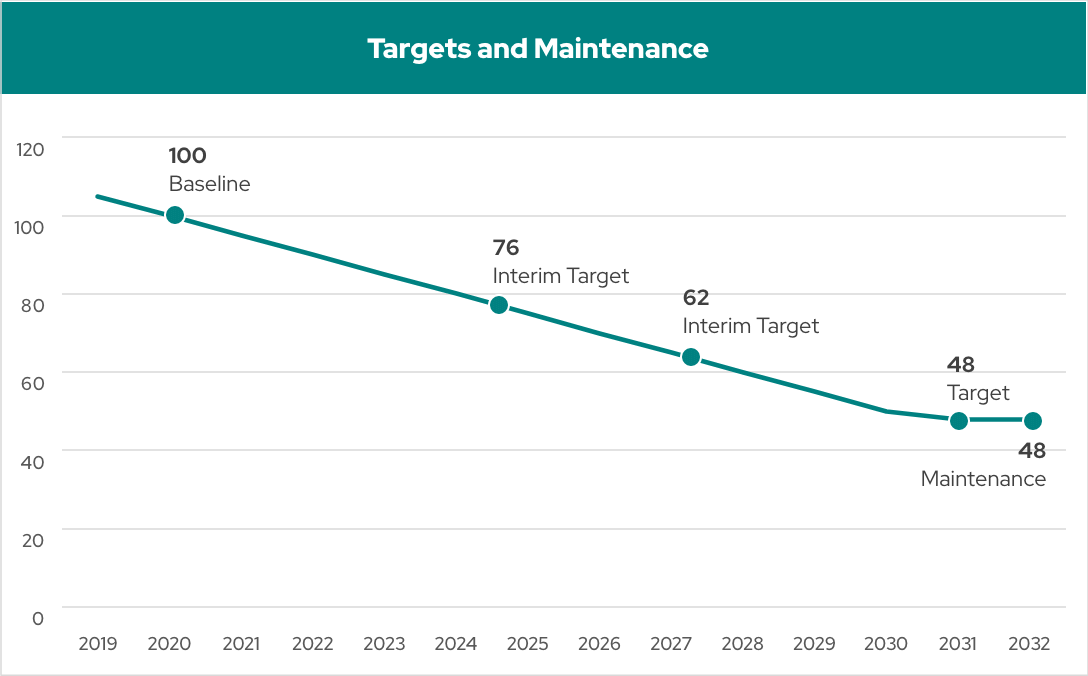Energize Denver: Vital Guidance for Building Owners and Managers

What is Energize Denver?
The Energize Denver ordinance is a significant legislative initiative designed to promote energy efficiency and sustainability in the city's larger buildings, specifically those with a total floor area of 25,000 square feet or more. According to the City of Denver, commercial and industrial (C&I) buildings currently account for 49% of the city and county’s CO2 emissions. The city’s short-term goals are designed to reduce C&I buildings’ energy use intensity (EUI) by 30% by 2030. Under the Energize Denver ordinance, building owners and managers are required to annually measure and report their energy usage and greenhouse gas emissions, effectively establishing a benchmark for performance.
Annual Benchmarking
A crucial element of ensuring compliance with Energize Denver is the submission of your annual benchmarking report. The city relies on this report to track building performance and the city and county’s greenhouse gas (GHG) emissions and goals. Should a building's EUI exceed the performance requirement, the building’s owner or manager is required to take corrective measures to curtail energy consumption or potentially face fines or other penalties the city may impose.
By June 1 of every year, building owners or managers must complete a series of portfolio and compliance training videos and pass a benchmarking quiz. The City of Denver website provides more information on how to submit annual benchmarking.
Targets and Maintenance
On January 13, 2021, the Office of Climate Action, Sustainability, and Resiliency (CASR) released the 2030 site EUI targets. These EUI targets vary by building and usage type.
The City of Denver established each building's baseline EUI by referencing the 2019 benchmarking data submitted to the city. The term “EUI” refers to the amount of heat and electricity consumed by a building (utility bills) divided by gross square footage (GSF). To determine the interim targets for 2024 and 2027, the city created a linear progression from a building's 2019 baseline EUI to its 2030 EUI target. This approach ensures a gradual reduction in EUI between each target. It is expected that buildings will consistently maintain EUIs below these interim targets in subsequent years, and for the lifetime of the building.

| EUI | Year |
|---|---|
| 100 Baseline | 2020 |
| 76 Interim Target | 2024 |
| 62 Interim Target | 2027 |
| 48 Target | 2030 |
| 48 Maintenance | 2032 |
Penalties
There are two main penalty categories:- Target Penalties: These apply when a building does not meet the 2024 Interim Target, 2027 Interim Target, or 2030 Target.
- Maintenance Penalties: These come into effect after 2030 if you do not sustain your 2030 Target indefinitely. If your annual site EUI exceeds the target by 5%, you will revert to the target penalty level until you again meet the target for your site.
Penalty Breakdown
Under the Energize Denver ordinance, the Office of Climate Action, Sustainability, and Resiliency has the authority to impose civil penalties of up to $0.70 for each mandated one-thousand British thermal units (kBtu) reduction not attained by the owner's covered building in a given year. Example Penalty (No Benchmarking Submitted)73,546 Square Foot Building
- 2024 Penalty: $1,187,032
- 2027 Penalty: $1,899,693
- 2030 Penalty: $2,612,353
How Nelnet Renewable Energy Can Help
Converting to solar power can provide a cost-effective, long-term solution for achieving compliance. Nelnet Renewable Energy is a leading solar installer with over 1,500 completed installations. We work with our clients to construct solar energy systems designed to the needs of the business. Solar energy can play a crucial role in helping businesses meet their energy goals and avoid penalties. Here's how:- Reduced Energy Costs. Solar power generation can significantly reduce a business's energy costs and usage by generating electricity from sunlight, which is a clean and renewable resource. This reduction in energy expenses can help businesses meet their energy efficiency targets without exceeding their budgets.
- Meeting Renewable Energy Targets. Like Denver, many regions and cities have set renewable energy targets as part of their sustainability initiatives. By installing solar panels, businesses can generate clean, renewable energy, which can be counted toward these targets and help them avoid penalties for non-compliance.
- Environmental Benefits. Using solar power reduces a business's carbon footprint. This aligns with environmental sustainability goals and may contribute to meeting emissions reduction targets set by local authorities.
Contact our team to explore the possibilities for solar with your building today.